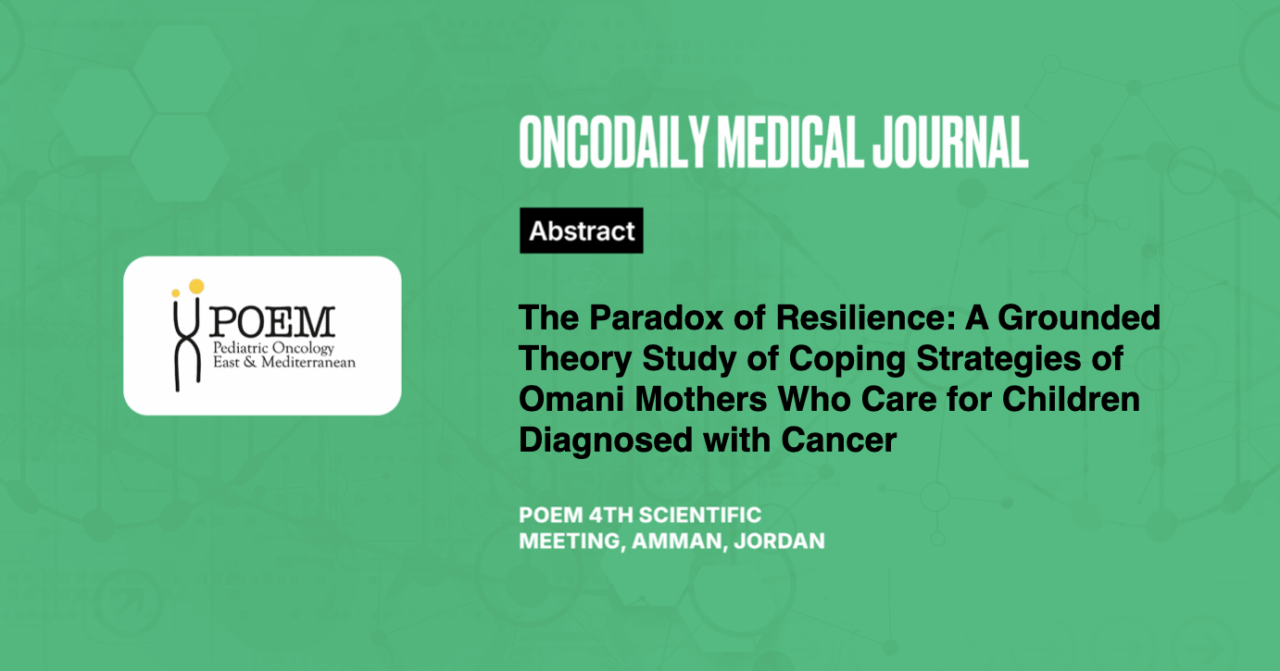The Paradox of Resilience: A Grounded Theory Study of Coping Strategies of Omani Mothers Who Care for Children Diagnosed with Cancer
Abstract
Introduction: Caring for children with cancer presents significant challenges for mothers worldwide. In many societies, mothers often take on the primary caregiving role, navigating complex family dynamics and societal expectations. This caregiving burden can lead to heightened stress, anxiety, and emotional turmoil. This study aims to explore the coping strategies used by mothers caring for children with cancer.
Methodology: Using a Constructivist Grounded Theory (CGT) approach, 14 semi-structured interviews were conducted with mothers whose children were receiving treatment at Sultan Qaboos University Hospital. Data were analyzed using CGT analysis and constant comparative analysis to identify patterns of coping strategies.
Results: The core category, Paradox of Resilience, captured how mothers coped by balancing opposing strategies. Five subthemes emerged: Strength in Vulnerability showed that embracing emotional fragility became a source of strength. Hope and Realism coexisted, with mothers maintaining optimism while preparing for challenges. Cultural Conformity and Resistance reflected adherence to caregiving norms while pushing against those that conflicted with their needs. Independence and Interdependence illustrated a shift between self-reliance and seeking support. Faith and Acceptance revealed how spiritual faith is balanced with acceptance of uncertainty. These paradoxes allowed mothers to cope dynamically with the stresses of caregiving.
Conclusion: These mothers exemplify a paradox of resilience, where embracing vulnerability enhances their strength. By recognizing their struggles while fostering hope, they create a dynamic coping mechanism that allows them to manage the emotional turmoil of caregiving. Understanding this paradox can guide support systems to better address their needs and foster resilience in the face of adversity.





